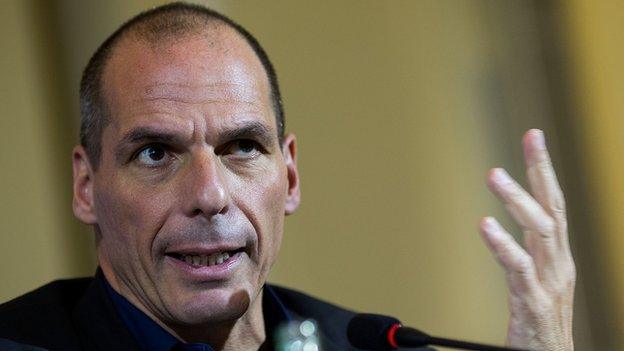Syriza dumps Marx for Blair
- Published
- comments

Greek finance minister Yanis Varoufakis risks buying economic stability at the price of political instability
In the short course of the latest Greek financial crisis, Syriza appears to have transformed itself from what in the UK would be seen as traditional leftists into Blairites.
In the reforms proposed by the Greek finance minister Yanis Varoufakis to secure a four-month extension of its life-or-death bailout, vanished are the party's seeming implacable hostility to privatisation, determination to re-hire sacked public-sector workers, and desire for rapid rises in minimum wages.
Or to put it another way, the platform on which Syriza won the recent general election has been significantly reconstructed.
In its place are what we might see as "New Syriza" measures: commitments to improve the efficiency of the public sector and eliminate waste, to promote competition with a strengthened competition commission, to reform labour markets, to streamline pension schemes, not to reverse privatisations and take a pragmatic approach to future sales of government assets.
What happened to the government's socialism? Well it is in a postscript to the reforms headed "humanitarian crisis" - in which it promises "targeted non-pecuniary measures", such as food stamps, to tackle poverty. But even here it pledges "no negative fiscal effect".
That said, Greece's plutocracy still has some reason to be afraid, because Mr Varoufakis says he is determined to reduce legal tax avoidance and illegal tax evasion, and to ruthlessly stamp out endemic corruption.
Presumably the world's fastest reinvention of what it is to be socialist will persuade the European Commission, the European Central Bank and the International Monetary Fund - and Berlin, above all - that Syriza is now serious about modernising the Greek economy as the condition of receiving their continued financial succour.
But in appeasing the European economic establishment, seen only days ago as the enemy, Mr Varoufakis risks alienating his friends, the members and supporters of his very young party.
The danger for him is that he buys economic and financial stability at the price of political instability.